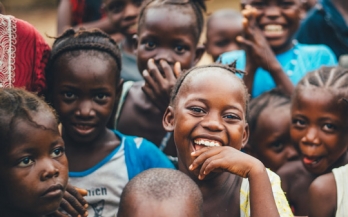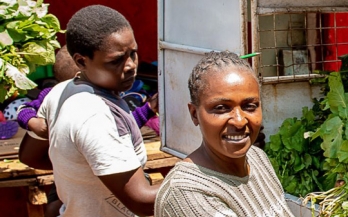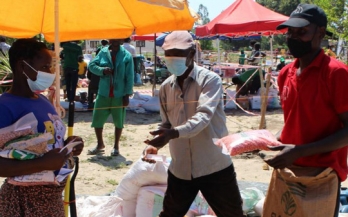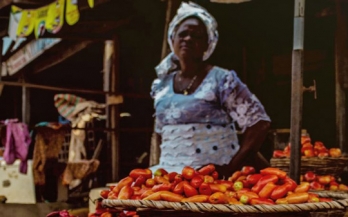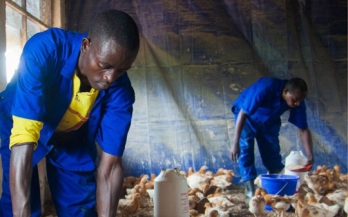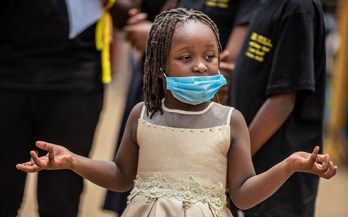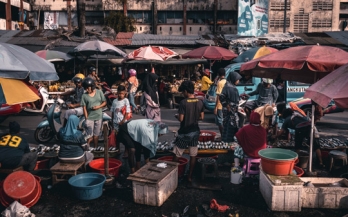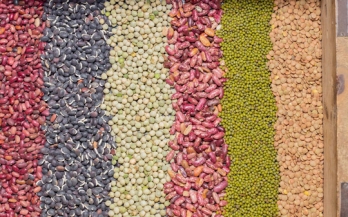This infographic has been prepared by GAIN based on the blog Keeping food flowing within African food systems by busting policy myths penned by GAIN's Executive Director Lawrence Haddad commenting on the paper "Essential non-essentials": COVID-19 policy missteps in Nigeria rooted in persistent myths about African food supply chains.
GAIN and partners, including the Scaling Up Nutrition (SUN) Business Network (co-convened by the World Food Programme (WFP)), undertook a survey of food system SMEs in Kenya in October/November 2020, aiming to assess the impacts of the COVID-19 pandemic and associated control measures on their businesses and their support needs.
GAIN and partners, including the Scaling Up Nutrition (SUN) Business Network (co-convened by the World Food Programme (WFP)), undertook a survey of food system SMEs in Nigeria in October/November 2020, aiming to assess the impacts of the COVID-19 pandemic and associated control measures on their businesses and their support needs.
GAIN and partners, including the Scaling Up Nutrition (SUN) Business Network (co-convened by the World Food Programme (WFP)), undertook a survey of food system SMEs in Nigeria in October/November 2020, aiming to assess the impacts of the COVID-19 pandemic and associated control measures on their businesses and their support needs.
GAIN and partners, including the Scaling Up Nutrition (SUN) Business Network (co-convened by the World Food Programme (WFP)), undertook a survey of food system SMEs in Rwanda in October/November 2020, aiming to assess the impacts of the COVID-19 pandemic and associated control measures on their businesses and their support needs.
The COVID-19 pandemic and its second wave have continued to negatively impact the livelihoods and threaten the food security and nutrition (FSN) of many households in Kenya. In response to mitigate these impacts, the Global Alliance for Improved Nutrition (GAIN) developed the Keeping Food Markets Working (KFMW) programme to provide targeted support to help sustain core food systems, workers and markets during the COVID-19 emergency.
The coronavirus (COVID-19) pandemic is disrupting the world as we know it, with a heavy toll on human lives and economic activities. Its rapid global spread is threatening to affect millions of people already made vulnerable by food insecurity, malnutrition and the effects of conflict and other disasters.
This Situation Report—the fifth in a series—finds that COVID-19-related control measures continue to have an impact on food systems in 10 countries where GAIN works: Bangladesh, Ethiopia, India, Indonesia, Kenya, Mozambique, Nigeria, Pakistan, Rwanda and Tanzania.
With the Nutrition for Growth and United Nations Food Systems Summits scheduled in 2021, ambitious new multi-stakeholder commitments and actions are expected for better access to safe nutritious food. In 2019 the world was already off-track to achieve SDG2 - Zero Hunger - and the impact of the Covid-19 pandemic is expected to exacerbate this gap requiring stronger financing and actions for nutrition.
This paper summarises research conducted on the impacts of COVID-19 on LMICs’ food systems. It
reviews interventions implemented to support agri-food SMEs, including rapid responses to keep markets working, strategic recovery interventions to build back better, and systemic shifts to facilitate continuous learning and adaptation.
